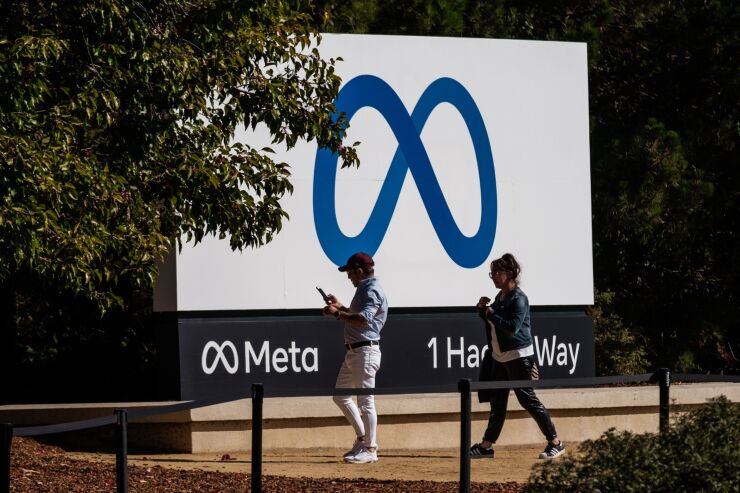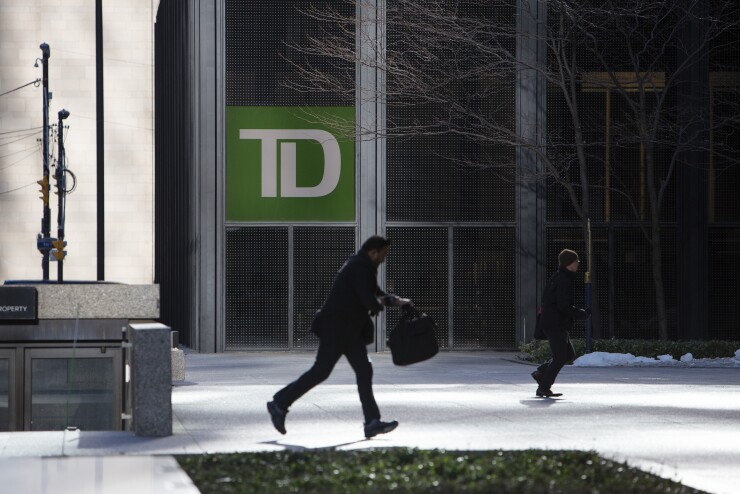
In the wake of President-elect Donald Trump's
When CFPB Director Rohit Chopra
Former Sen. Pat Toomey, R-Pa., then-ranking member of the Senate Banking Committee, said Chopra would return the CFPB to "the rogue, unaccountable, anti-business agency that it was during the Obama administration."
Read more:
Those concerns of overreach have only continued to grow throughout the banking space since then.
In the wake of the CFPB's final
The version finalized last month allows consumers to share their data related to checking accounts, prepaid cards, credit cards, mobile wallets, payment apps and other products provided by their financial institutions — and requires that the institutions facilitate the secure transfer of this information.
"This isn't open banking — it's open season for more fraud and scams," Trish Wexler, a spokeswoman for JPMorgan Chase, said in a written statement. "By mandating banks must hand over sensitive customer account data to any third party that got someone to click 'I accept' on their app, this rule handcuffs banks' ability to demand high security standards from third parties."
Read more:
Overdraft fees have been another major point of contention between the CFPB and the financial services industry, as a January proposal to
Brent Tjarks, executive director of the Mid-size Bank Coalition of America which represents more than 100 midsize banks, wrote that the loss of a "meaningful source of revenue to support the cost of deposit products" left institutions with no choice but to pull back from products "that benefit lower-income and underbanked consumers."
Amid the growing regulatory hurdles facing financial institutions, leaders wait with bated breath for
Read on to learn more about some of the largest enforcement actions, both realized and potential, that the CFPB has levied against banks in recent months.
Navy Federal weathers CFPB penalty for overdraft practices

The $181 billion-asset Navy Federal Credit Union has been ordered by the CFPB to pay out roughly $95 million in refunds and penalties after the agency deemed its overdraft fees to be illegal.
The CFPB said in a
"Navy Federal illegally harvested tens of millions of dollars in junk fees, including from active duty servicemembers and veterans," CFPB Director Rohit Chopra said in the release. "The CFPB's work to rid the market of illegal junk fees has saved American families billions of dollars."
Chopra has been a vocal opponent to "
Read more:
Meta faces threat of CFPB lawsuit over finance-related ad data

Leaders at the CFPB are weighing the possibility of a lawsuit against Meta, the parent company of Facebook and Instagram, on suspicions that it violated the Consumer Financial Protection Act through the company's advertising methods.
Meta monitors consumer activity across the internet
Meta received a Notice and Opportunity to Respond and Advice, or NORA, from the CFPB in September, signaling some form of impending legal action.
Read more:
The fallout from VyStar Credit Union's digital banking upgrade

It's been more than two years since the $14.8 billion-asset VyStar's deployment of a new online banking system left many of its members with spotty access to accounts and a host of late and nonsufficient fund fees. Now, the
Both agencies announced on Oct. 31 that the Jacksonville, Florida-based credit union will be required to pay out roughly $1.5 million to the CFPB's victim relief fund and establish a process for identifying members impacted by the outages and reimbursing them with interest, as per the
"Credit unions must prioritize their members, yet Vystar's due diligence fell far short of what was required for completing a successful conversion of the credit union's mobile and online banking platforms," NCUA Chairman Todd Harper said in a
Read more:
Capital One's online savings accounts draw CFPB ire

CFPB officials notified Capital One Financial executives last month that the agency is exploring an enforcement action against the bank, following alleged discrepancies in the rates associated with its online savings accounts.
"This investigation relates to a previously reported class action lawsuit filed in 2023, for which we have filed a motion to dismiss in court," a Capital One spokesperson said in an email.
The bank elaborated in its October securities filing that seven lawsuits have been filed against Capital One since the 2012 acquisition of ING Direct USA. Online high-yield savings accounts at ING, which the bank converted into "360 Savings" accounts the following year, are at the heart of the legal battles.
Read more:
TD Bank hit with penalties for credit-reporting shortcomings

TD Bank is slated to pay out $28 million under a
"The CFPB's investigation found that TD Bank illegally threatened the consumer reports of its customers with fraudulent information and then barely lifted a finger to fix it," CFPB Director Rohit Chopra said in a
The bank neither confirmed nor denied any wrongdoings associated with the allegations, but said through representatives that it "cooperated fully to resolve this matter.""Long before this settlement, TD self-identified these matters and voluntarily and proactively implemented enhancements to our furnishing and dispute handling practices," TD spokesperson Miranda Garrison said in an email.
Read more:





